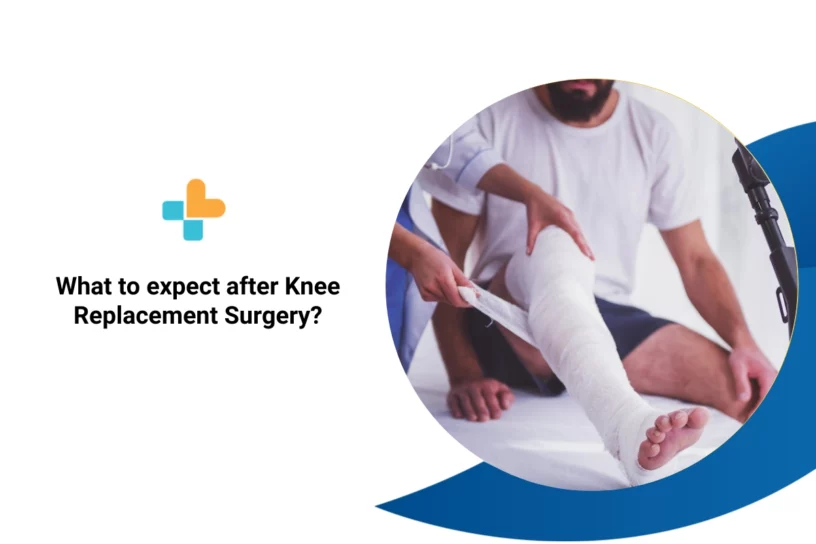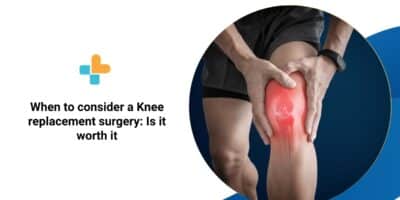A knee replacement surgery is a common orthopedic surgical procedure that aims to help the patient alleviate pain, restore their mobility, and improve the quality of their life that is usually hampered by severe knee joint pian due to various conditions such as osteoarthritis. While knee replacement surgery is a significant milestone in the patient’s journey, it is essential to understand that a successful recovery from the surgery is equally essential.
Post-surgery, the rehabilitation plan is essential to ensure quick recovery of the patient and the success of the knee replacement surgery. A proper rehabilitation plan ensures that the patient is
- Discharged sooner
- The symptoms of pain and inflammation are reduced
- The mobility is restored
- The need to seek support for basic activities is gone, making the person independent.
- Potential risks and complications are avoided
In this blog, we will explore the various aspects of knee replacement surgery and provide valuable insights into the patient’s recovery process. From the immediate post-operative period to warning signs of complications and expert recovery tips, this article aims to empower patients and enhance their overall recovery experience.
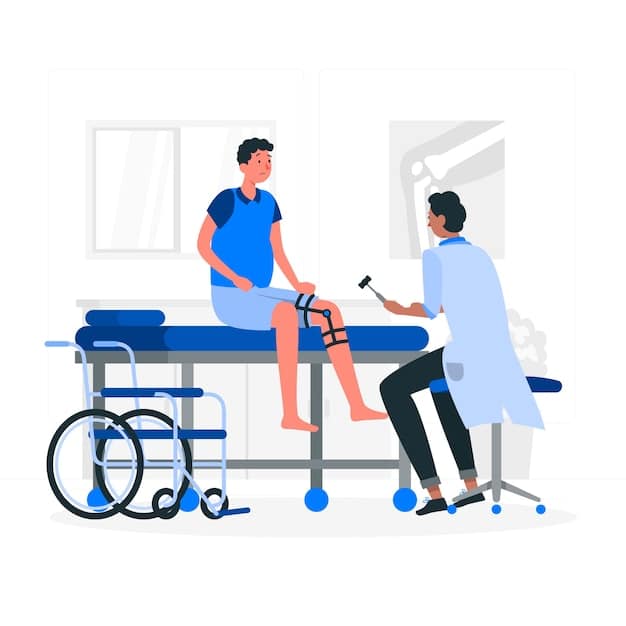
What happens in the first 24 hours post-knee replacement surgery?
After a knee replacement surgery, the first 24 hours are highly crucial in setting the stage for the patient’s successful recovery. During this time, the patient is closely monitored in a hospital setting. At this time, the patient also regains consciousness as the effect of anesthesia starts to wear off. To ensure effective pain relief while minimizing side effects, doctors often employ a technique called multimodal analgesia.
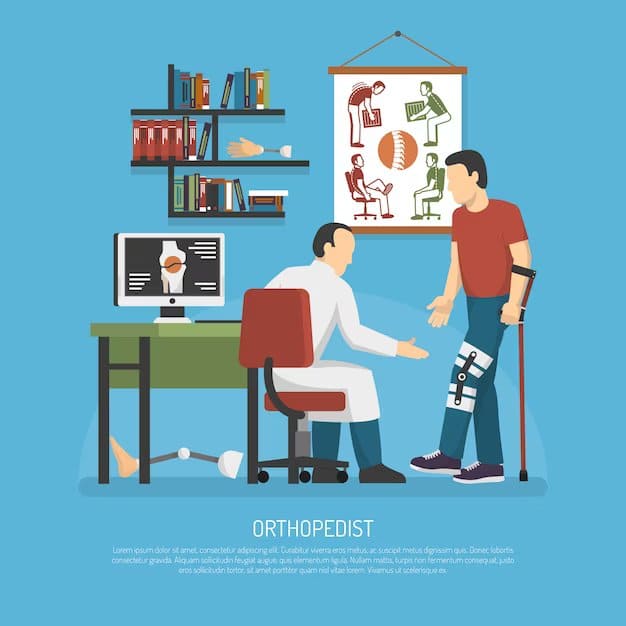
This approach involves combining different methods of pain control that work synergistically to provide optimal pain relief. Multimodal pain management typically involves using a combination of medications such as NSAIDs (nonsteroidal anti-inflammatory drugs), opioids, NMDA antagonists, and serotonin inhibitors as necessary.
Within the first 24 hours after the knee replacement surgery, if the pain and inflammation are under control, then the patient might be able to stand up with the help of a walker or hospital staff, such as a physiotherapist. This first step of being able to stand within 24 hours after the knee replacement surgery is a sign that the patient is likely to recover and gain strength and mobility quickly.
Continuous Passive Motion (CPM) Machines
Continuous passive motion (CPM) machines are automated machines that are specially designed to move a joint in a controlled manner without active effort from the patient. It is commonly used after surgery to reduce the stiffness in the treated joint and enhance the overall range of motion.
After a knee replacement surgery, the doctor usually advises using a continuous passive motion (CPM) machine. This machine slowly moves the treated leg. This machine continuously straightens and bends the affected leg while the patient is lying on their back. The CPM machine can be used on the patient for about 8 hours every day.
How much weight can be put on the knee after surgery?
A very common concern after a knee replacement surgery is to determine the safe weight limit to be put on the new knee. The amount of weight that can be put on the new knee and post-operation guidelines to be followed are usually given by the doctor. Orthopedic surgeons often advise partial weight-bearing with the help of assistive devices like crutches or walkers during the early phases of recovery, though weight-bearing limits may vary depending on the state of the individual patient.
As the patient’s healing progresses and the strength gets better, gradual weight-bearing progression is encouraged by the doctor. These practices eventually lead to full weight bearing and eventually help them return to normal activities. It is not important to follow the instructions given by your doctor to ensure that your recovery is optimal and prevent any stress on the new knee.
When can the patient leave the hospital after knee replacement surgery?
The time of hospital stay after the knee replacement surgery may vary significantly depending upon various factors which may include the type of surgery performed, the patient’s overall health, and the recovery process. With all the advances made in knee replacement surgical techniques and rehabilitation methods, the patient’s stays at the hospital have become much shorter.
In most cases, the patients are discharged after the surgery once the pain is managed and under control. However, the decision to discharge a patient is based on several factors, such as pain management, mobility, and the patient’s ability to perform activities on a daily basis. The healthcare team will consider all of these factors before discharging the patient.
Risks of knee replacement surgery
Like any surgical procedure, knee replacement surgery also carries risks and complications. Some of these may include the following,
- Infection
- Bleeding
- Fracture
- Pain and stiffness
- Formation of blood cloths
- Wearing out or loosening of the prosthesis
Warning Signs of Infection after knee replacement surgery
A small percentage of patients, approximately 1 in 100 (or 1%), may experience an infection following knee replacement surgery. However, infections after a knee replacement surgery are rare. These infections may develop deep around artificial implants made of metal and plastic or in the incision itself. Even after the patient has been released from the hospital and has returned home, an infection could still arise. It’s significant to highlight that infections associated with joint replacements might manifest years after the initial operation, underscoring the importance of continued surveillance and monitoring throughout the duration of the patient’s life.
The warning Signs of Infection after knee replacement surgery may include the following,
- Increase in pain and stiffness of a well-functioning knee joint
- Redness and warmth in the operated area
- Blood, pus, or any other fluid coming out of the wound
- Swelling
- Feeling fatigued
- Fever and chills
- Night sweats
Warning Signs of Blood Clot after knee replacement surgery
Deep vein thrombosis (DVT), a dangerous illness in which a blood clot is formed inside a vein deep within the patient’s body, is one of the dangers associated with hip replacement or knee replacement surgery. Such clots run the risk of rupturing and making their way to the patient’s lungs, where they could cause a potentially fatal pulmonary embolism.
DVT can also prevent blood from flowing through the veins, causing blood to pool and cause swelling, pain, and long-term harm to the legs.
Some of the warning Signs of Blood Clot after knee replacement surgery
- Swelling
- Rapid heartbeat
- Mild fever
- Redness, whiteness, or discoloration around the skin
- Pain, stiffness, and tenderness in the leg
- A cord in the leg vein
Recovery Tips from Ayu Health Orthopedist Team
Follow the below-mentioned tips from Ayu Health Orthopedist Team to ensure a speedy recovery after knee replacement surgery,
1. Preparing your home
To ensure a smooth recovery after a knee replacement surgery, it’s important to prepare your home in advance. Set up a recovery room on the ground floor with essential items within reach. These items include pillows for elevating the lower leg, a telephone or cellphone with a charger for emergencies, properly arranged medicines, comfortable sleepwear, etc. Additionally, make sure to remove any potential tripping hazards from the floor and stock up on easily accessible food. During their recovery, the person may require assistance with daily tasks such as preparing meals and personal hygiene, so be prepared to lend a helping hand.
2. Wound Care
Monitoring the wound for any swelling, redness, or inflammation is also essential. Regularly get dressings done. Inform your healthcare provider immediately if you experience any blood or pus leaking from the wound, pain, foul smell, or redness. Avoid touching the wound with dirty hands.
3. Swelling
Keep checking the wound for any swelling, and seek medical help immediately if you see any.
4. Medication
It is essential to take medications on time as prescribed. To ensure taking medications on time, seek help from a family member or friend who would give you your medicines on time. You can also set reminders for the same. Additionally, you can also get a medication dispenser.
5. Diet
Diet is also crucial for speedy recovery after knee replacement surgery. Ensure to eat a healthy diet and avoid any junk or oily foods. You can also seek help from a nutritionist or dietician to learn about what to eat.
Frequently asked questions
1. How long does it take to walk normally after knee replacement?
In most cases, the patient can walk normally on their own after about 4-8 weeks after getting the knee replacement surgery. However, the time taken to walk normally may vary from one patient to another. Hence, it is best to consult your doctor to know more.
2. What can you not do after a knee replacement?
There are certain activities that care o be avoided when recovering from a knee replacement surgery. Some of these activities may include the following,
- High-impact activities such as sports
- Lifting heavy objects
- Twisting or jerking the knee
- Excessive bending
- Activities that can put a strain on the knee, such as prolonged kneeling
3. What is normal after knee replacement?
Experiencing some pain, discomfort, and stiffness in the knee is usually normal after knee replacement surgery. However, inform your doctor if the pain becomes persistent and unbearable.
4. Can I climb stairs after knee replacement?
It is not advised to climb stairs immediately after knee replacement surgery. However, after a few weeks, in the early stages of recovery, you can climb stairs cautiously with the help of assertive devices such as crutches. It is important to ask your doctor before climbing stairs after knee replacement surgery.
5. What is the fastest way to recover from knee surgery?
There are no fastest ways to recover from knee surgery. Getting adequate rest, balancing movements, mild exercises, cold compression, physiotherapy, and a good diet are essential in recovering quickly after knee surgery.
What is the best exercise after total knee replacement?
Aerobic exercises such as walking, dancing, and swimming are some good exercises after total knee replacement. Yoga also is a good option to add some exercise to the routine after a knee replacement surgery. However, it is essential to seek advice from your doctor before starting any exercise routine after a knee replacement surgery.
Conclusion
Knee replacement surgery is a crucial procedure. It is useful for patients with extreme knee pain to help them regain their mobility and reduce the pain. Where knee replacement surgery is essential, so is the aftercare. After knee replacement surgery, it is essential to follow the doctor’s post-operation guidelines to recover quickly. Following post-operative care ensures a quicker recovery. However, it is also important to be aware of any signs of complications, such as infections or swelling, and seek medical attention immediately upon noticing any.
After knee replacement surgery, post-operative care can help the patient in recovering quickly. Hence, at Ayu Health Network of Hospitals, our team of orthopedic surgeons ensures to provide the best treatment and post-operation care to our patients to ensure minimized risk of complications and speedy recovery of the patient. Ayu Health Network of Hospitals also has a team of highly skilled physiotherapists that helps patients with rehabilitation programs to restore their mobility quickly. To know more, visit our website at www.ayu.health.
- https://www.arthritis-health.com/surgery/knee-surgery/managing-pain-joint-replacement https://www.ncbi.nlm.nih.gov/pmc/articles/PMC7326061/
- https://www.ncbi.nlm.nih.gov/pmc/articles/PMC3164265/
- https://www.ncbi.nlm.nih.gov/pmc/articles/PMC6727971/#:~:text=Multimodal%20pain%20management%20involves%20the,techniques%20and%20opioids%20as%20needed.
- https://www.healthline.com/health/cpm-machine#What-is-a-CPM-machine?
- https://orthoinfo.aaos.org/en/diseases–conditions/joint-replacement-infection/
- https://www.arthritis-health.com/surgery/knee-surgery/what-expect-after-knee-replacement
- https://www.healthline.com/health/total-knee-replacement-surgery/rehabilitation-timeline#by-week-3
- https://www.ucihealth.org/medical-services/orthopaedics/hip-knee-surgery-services/deep-vein-thrombosis
- https://www.healthline.com/health/knee-replacement-surgery#takeaway
- https://www.tocdocs.com/is-knee-replacement-painful/#:~:text=Pain%20is%20to%20be%20expected,adequate%20for%20your%20pain%20level.
- https://tri-stateorthopaedics.com/5-tips-to-speed-your-recovery-after-knee-replacement-surgery/#:~:text=Balancing%20movement%20with%20getting%20enough,can%20help%20boost%20healing%20time.
- https://www.ibji.com/blog/orthopedic-care/what-to-expect-after-knee-replacement-surgery/#:~:text=Three%20Months%20After%20Surgery&text=You%20may%20still%20be%20experiencing,should%20be%20back%20to%20normal.
Our Hospital Locations
Orthopaedics Surgery Hospitals in Chandigarh | Orthopaedics Surgery Hospitals in Bangalore | Orthopaedics Surgery Hospitals in Jaipur | Orthopaedics Surgery Hospitals in NCR | Orthopaedics Surgery Hospitals in Hyderabad
Our Doctors
Orthopaedics Surgery Doctors in Chandigarh | Orthopaedics Surgery Doctors in Bangalore | Orthopaedics Surgery Doctors in Jaipur | Orthopaedics Surgery Doctors in NCR | Orthopaedics Surgery Doctors in Hyderabad
About the Author
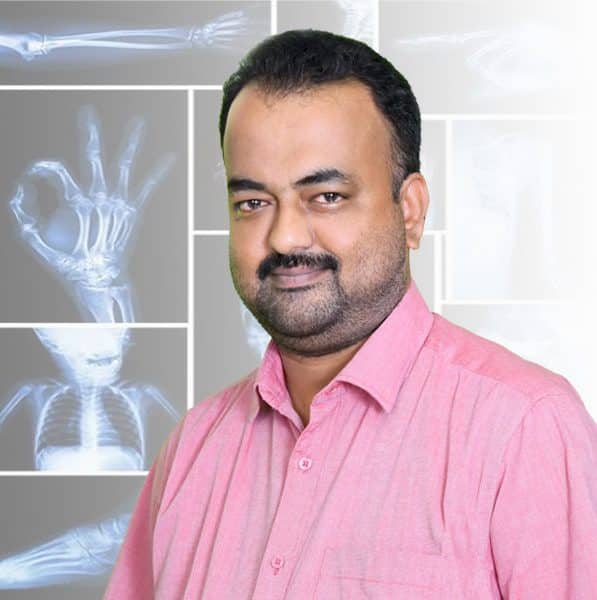
Dr. Manjunath Kumar K.
Dr. Manjunath Kumar K. is a renowned Orthopaedics currently practicing at Ayu Health, Bangalore.
He is an orthopedic surgeon currently practicing at Mallige Medical Center, Bangalore. A highly qualified doctor, he has completed his MBBS from Bangalore Medical College and MS in Orthopedics from KIMS, Hubli. further higher surgical training was from England, Birmingham. His post-graduate degree from the royal college of Edinburgh and the Royal College of Ireland. He also has vast experience in treating Unilateral Total Knee Replacement, Bilateral Total, Knee Replacement, Total Hip Replacement Surgery, and ACL Tear

